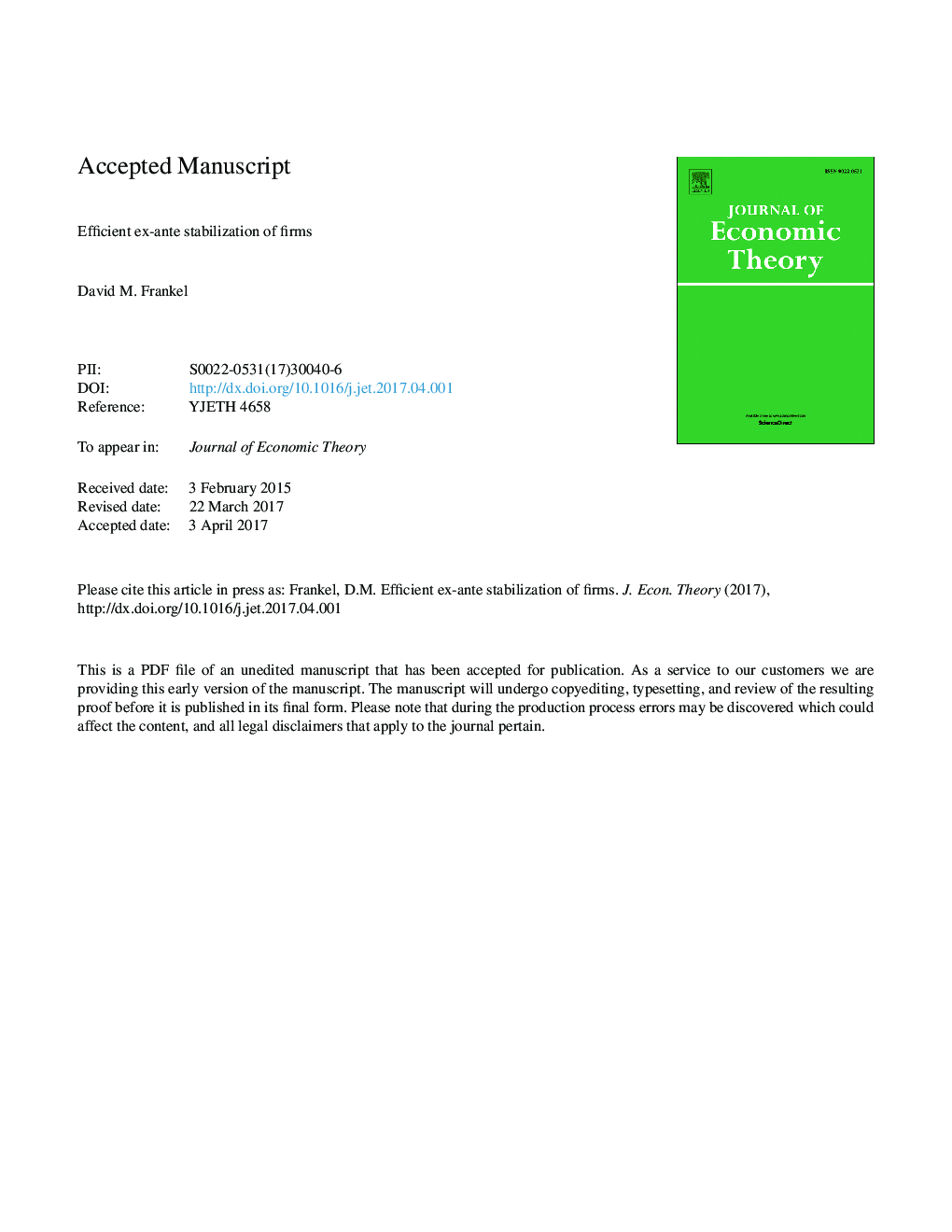| Article ID | Journal | Published Year | Pages | File Type |
|---|---|---|---|---|
| 5100076 | Journal of Economic Theory | 2017 | 49 Pages |
Abstract
Distressed firms are vulnerable to inefficient panic-based runs of their workers, suppliers, and customers. A policymaker may try to prevent such a run by pledging to protect the interests of these stakeholders should a firm cease to do business. However, this promise also enables the firm to demand better terms of trade from its stakeholders, which blunts the policy's effectiveness. We show how to avoid such an adverse response by the use of partial, countercyclical insurance. Under certain conditions, such a scheme costlessly implements the first-best outcome in the limit as the stakeholders' information becomes precise. We also identify least-cost efficient schemes in the cases of large noise, learning, and duopoly.
Related Topics
Social Sciences and Humanities
Economics, Econometrics and Finance
Economics and Econometrics
Authors
David M. Frankel,
